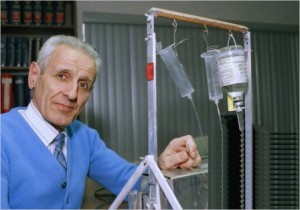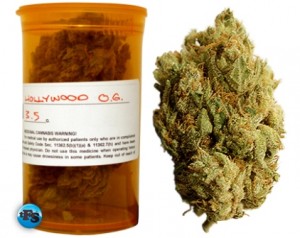2012 Massachusetts Statewide Ballot Questions

On November 6th, 2012, Massachusetts voters will decide “Yes” or “No” on three statewide ballot questions. Two of the questions are major medical issues and will have a lasting impact on our state. Do we want to prescribe medication to end the life of suffering patients? Do we want to be a state that prescribes medical Marijuana? As a general rule, I don’t take sides on political issues on NewBedfordGuide.com. In this article, I’ll simply provide the facts on each ballot question and relevant resources so YOU can decide.
Question #1: Availability of Motor Vehicle Repair Information
 This ballot question would force vehicle manufacturers to provide consumers the same diagnostic and repair information that the car dealers and in-state authorized repair facilities get. Basically, it stops dealers from overcharging consumers for diagnostic and repair information and forces them to make it available outside of their proprietary networks. It provides the consumer (or the consumers repair facility) the right to obtain diagnostic and repair information electronically on a subscription basis, for no more than fair market value and on terms that do not unfairly favor dealers and authorized repair facilities. It also provides consumers unfiltered access to the information outside of the dealerships propriety systems. You can read the official ballot question summary here.
This ballot question would force vehicle manufacturers to provide consumers the same diagnostic and repair information that the car dealers and in-state authorized repair facilities get. Basically, it stops dealers from overcharging consumers for diagnostic and repair information and forces them to make it available outside of their proprietary networks. It provides the consumer (or the consumers repair facility) the right to obtain diagnostic and repair information electronically on a subscription basis, for no more than fair market value and on terms that do not unfairly favor dealers and authorized repair facilities. It also provides consumers unfiltered access to the information outside of the dealerships propriety systems. You can read the official ballot question summary here.
A YES VOTE would enact the proposed law requiring motor vehicle manufacturers to allow vehicle owners and independent repair facilities in Massachusetts to have access to the same vehicle diagnostic and repair information made available to the manufacturers’ Massachusetts dealers and authorized repair facilities.
A NO VOTE would make no change in existing laws.
Question #2: Prescribing Medication to End Life

This is probably the most controversial ballot question in decades for Massachusetts residents. At a terminally ill patients request, should Massachusetts doctors be allowed to prescribe medication to end that patient’s life? In 1999, Dr. Jack Kevorkian served 8 years of a 20-25 year sentence for second degree murder for assisting a terminally ill patient’s life. There are several strict requirements to the law. First, the patient must be “mentally capable” of requesting these medications. Second, the patient must have “an incurable, irreversible disease that will, within reasonable medical judgment, cause death within six months.” Third, the patient must “voluntarily expresses a wish to die and has made an informed decision.” Finally, “the patient would ingest the medicine in order to cause death in a humane and dignified manner.” You can read the official ballot question summary here.
A YES VOTE would enact the proposed law allowing a physician licensed in Massachusetts to prescribe medication, at the request of a terminally-ill patient meeting certain conditions, to end that person’s life.
A NO VOTE would make no change in existing laws.
Question #3: Medical Use of Marijuana
 In 2008, through a ballot question, Massachusetts decriminalized Marijuana use for anyone in possession of 1 ounce or less. Instead of jail time, these users paid a $100 fine. This year’s Question #3 addresses the medical use of Marijuana. In simple terms, “this proposed law would eliminate state criminal and civil penalties for the medical use of marijuana by qualifying patients. To qualify, a patient must have been diagnosed with a debilitating medical condition, such as cancer, glaucoma, HIV-positive status or AIDS, hepatitis C, Crohn’s disease, Parkinson’s disease, ALS, or multiple sclerosis.” Currently, 17 U.S. states and the District of Columbia approve and regulate Marijuana for medical use. You can read the official ballot question summary here.
In 2008, through a ballot question, Massachusetts decriminalized Marijuana use for anyone in possession of 1 ounce or less. Instead of jail time, these users paid a $100 fine. This year’s Question #3 addresses the medical use of Marijuana. In simple terms, “this proposed law would eliminate state criminal and civil penalties for the medical use of marijuana by qualifying patients. To qualify, a patient must have been diagnosed with a debilitating medical condition, such as cancer, glaucoma, HIV-positive status or AIDS, hepatitis C, Crohn’s disease, Parkinson’s disease, ALS, or multiple sclerosis.” Currently, 17 U.S. states and the District of Columbia approve and regulate Marijuana for medical use. You can read the official ballot question summary here.
A YES VOTE would enact the proposed law eliminating state criminal and civil penalties related to the medical use of marijuana allowing patients meeting certain conditions to obtain marijuana produced and distributed by new state-regulated centers or, in specific hardship cases, to grow marijuana for their own use.
A NO VOTE would make no change in existing laws.
Are you for or against any of these ballot questions? Post a comment!